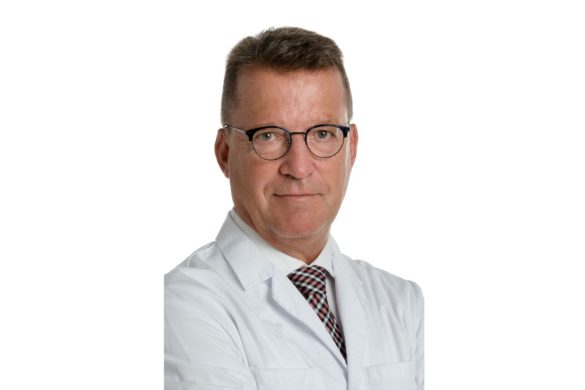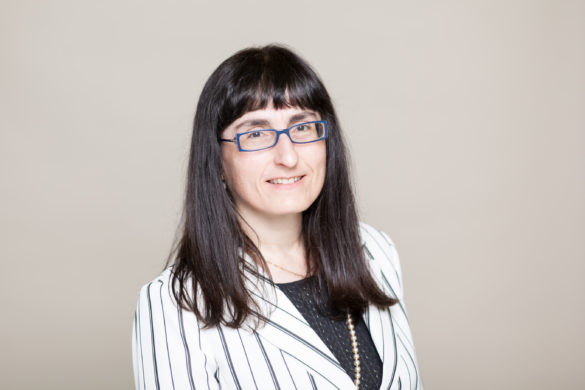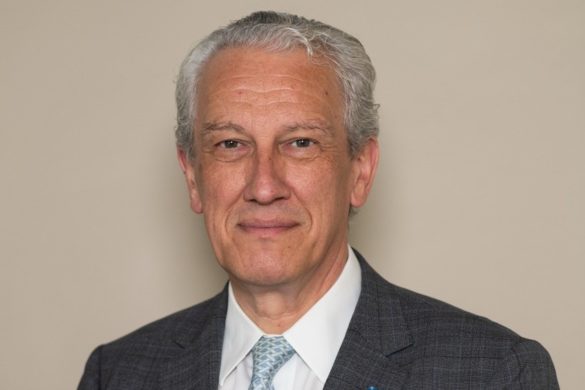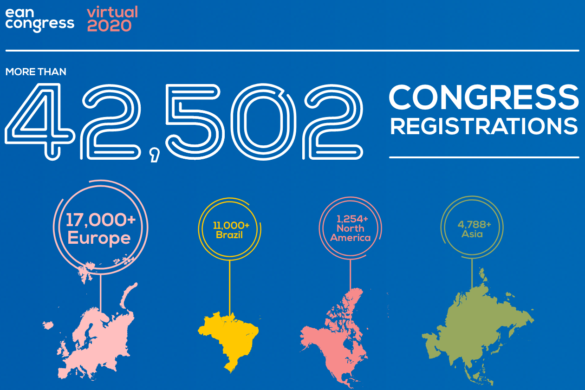Last month I told you that the bill for brain disease in Europe is €800 billion. To reduce this burden, we need to buy better brain treatment. To make a real long-term difference, we need more research to understand, treat and prevent brain disease better. In the meantime, of course, European and national governments should support healthcare and societal policies which we already know will help, such as reducing smoking, alcohol consumption, obesity and road traffic accidents.
The European Union only spends 1.8% of its gross domestic product on research whereas the USA spends 2.7% and Japan 3.4% (www.thelancet.com/journals/lancet/article/PIIS0140-6736(11)60184-0/fulltext). National governments spend ten times more on healthcare research. The European Parliament, Council and Commission should devote more of their European budget to research. The European Commission is launching the HORIZON 2020 project to distribute future research funds, replacing Framework Programme 7 which is the current vehicle for European research funding. The new programme will run from 2014 to 2020 with a proposed €80 billion budget (a 46% increase over Framework Programme 7). The debate about the total funding for HORIZON 2020 and its apportionment to different research areas is going on now.
A major criticism of European research funding has been the complexity of the application and administration processes, a complexity so horrendous that I have heard one senior university executive say that the money was not worth the trouble. Another criticism is that the funding may be sufficient to set up a programme but not to support the continuation of success. Alarmed by this situation at least three groups of European healthcare scientists have exhorted the European Commission to increase the funding allocated and improve the management of research support in HORIZON 2020.
The first group is the non-governmental European Science Foundation – ESF founded in Strasbourg in 1974. It now has 67 member organisations including research funding organisations, research performing organisations, academies and learned societies. It aims to provide a common platform to advance European research and explore new directions for research at the European level. Its European Medical Research Councils (EMRC) standing committee has been actively involved in advising about biomedical science policy over the past 41 years, http://www.esf.org/nc/research-areas/medical-sciences.html. The EMRC has petitioned the European Parliament to increase spending on healthcare research and the EFNS has endorsed this petition. One of the members of the Standing Committee of the EMRC is Professor Anna Członkowska, Institute of Psychiatry and Neurology, Warsaw, who is the chair of our Stroke Scientist Panel.
The second group is Science Europe, an association of now 51 European Research Funding Organisations and Research Performing Organisations, www.scienceeurope.org. It held its first meeting in Berlin in 2011 and aims to promote the collective interests of its members. It has six committees and its Medical Sciences Committee is chaired by neurologist Professor Richard Frackowiak. It has published on its website a statement supporting the HORIZON 2020 proposals, endorsing a mix of competition and cooperation, simplification in administration and openness in publication.
The third group is the Alliance for Biomedical Research – ABRE, a group of 21 medical societies which aims to promote the best interests and values of research across all medical disciplines in Europe. It held its first meeting in Brussels in 2010. Our nomination of Professor Gustave Moonen, Secretary General of the European Neurological Society, to its Executive Committee was approved at its recent General Assembly, a good example of the close partnership now between the EFNS and the ENS. The Alliance seeks to establish a European Health Research Council.
All three organisations have a remit to fight for funds for healthcare research in general. The only political organisation with a brief for representing the particular needs of people with brain diseases (not just neurological disease but especially and even more psychiatry) is the European Brain Council founded in 2002 by our own former President Professor Jes Olesen. The neurological delegates on this Council are Professor Gustave Moonen and I. Since the foundation of the European Brain Council, the European spend on brain research has increased substantially so that in the period 2007-2011, the total Framework Programme 7 support for brain research was €1.47 billion. While this was a substantial increase over previous periods it is not enough. With more money we could capitalise on the advances in neurogenetics, neurobiology, neuropharmacology and other basic neuroscience fields and bring them to bear on clinical practice.
The European Union only spends 1.8% of its gross domestic product on research whereas the USA spends 2.7% and Japan 3.4% (www.thelancet.com/journals/lancet/article/PIIS0140-6736(11)60184-0/fulltext). National governments spend ten times more on healthcare research. The European Parliament, Council and Commission should devote more of their European budget to research. The European Commission is launching the HORIZON 2020 project to distribute future research funds, replacing Framework Programme 7 which is the current vehicle for European research funding. The new programme will run from 2014 to 2020 with a proposed €80 billion budget (a 46% increase over Framework Programme 7). The debate about the total funding for HORIZON 2020 and its apportionment to different research areas is going on now.
A major criticism of European research funding has been the complexity of the application and administration processes, a complexity so horrendous that I have heard one senior university executive say that the money was not worth the trouble. Another criticism is that the funding may be sufficient to set up a programme but not to support the continuation of success. Alarmed by this situation at least three groups of European healthcare scientists have exhorted the European Commission to increase the funding allocated and improve the management of research support in HORIZON 2020.
The first group is the non-governmental European Science Foundation – ESF founded in Strasbourg in 1974. It now has 67 member organisations including research funding organisations, research performing organisations, academies and learned societies. It aims to provide a common platform to advance European research and explore new directions for research at the European level. Its European Medical Research Councils (EMRC) standing committee has been actively involved in advising about biomedical science policy over the past 41 years, http://www.esf.org/nc/research-areas/medical-sciences.html. The EMRC has petitioned the European Parliament to increase spending on healthcare research and the EFNS has endorsed this petition. One of the members of the Standing Committee of the EMRC is Professor Anna Członkowska, Institute of Psychiatry and Neurology, Warsaw, who is the chair of our Stroke Scientist Panel.
The second group is Science Europe, an association of now 51 European Research Funding Organisations and Research Performing Organisations, www.scienceeurope.org. It held its first meeting in Berlin in 2011 and aims to promote the collective interests of its members. It has six committees and its Medical Sciences Committee is chaired by neurologist Professor Richard Frackowiak. It has published on its website a statement supporting the HORIZON 2020 proposals, endorsing a mix of competition and cooperation, simplification in administration and openness in publication.
The third group is the Alliance for Biomedical Research – ABRE, a group of 21 medical societies which aims to promote the best interests and values of research across all medical disciplines in Europe. It held its first meeting in Brussels in 2010. Our nomination of Professor Gustave Moonen, Secretary General of the European Neurological Society, to its Executive Committee was approved at its recent General Assembly, a good example of the close partnership now between the EFNS and the ENS. The Alliance seeks to establish a European Health Research Council.
All three organisations have a remit to fight for funds for healthcare research in general. The only political organisation with a brief for representing the particular needs of people with brain diseases (not just neurological disease but especially and even more psychiatry) is the European Brain Council founded in 2002 by our own former President Professor Jes Olesen. The neurological delegates on this Council are Professor Gustave Moonen and I. Since the foundation of the European Brain Council, the European spend on brain research has increased substantially so that in the period 2007-2011, the total Framework Programme 7 support for brain research was €1.47 billion. While this was a substantial increase over previous periods it is not enough. With more money we could capitalise on the advances in neurogenetics, neurobiology, neuropharmacology and other basic neuroscience fields and bring them to bear on clinical practice.









